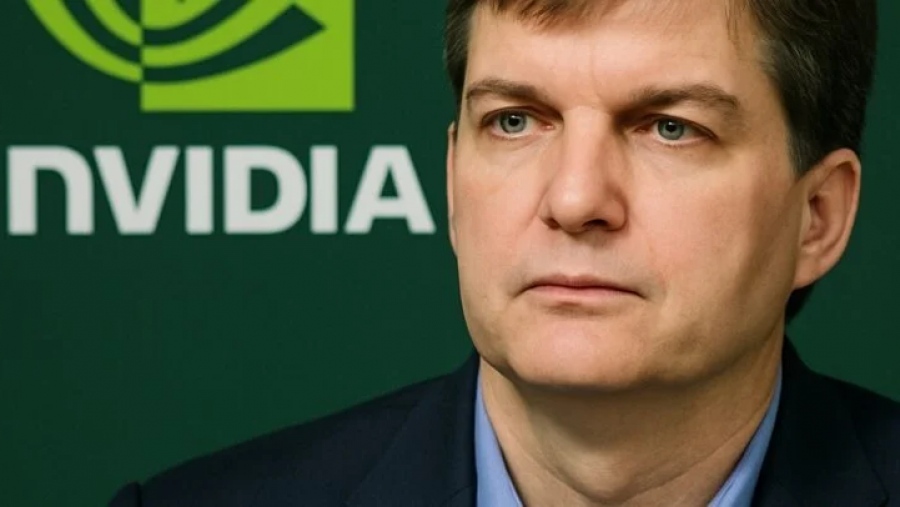Scandal on Wall Street, shadows over Nvidia – Chanos and Burry see epic scandal behind the AI boom

Nvidia is on the defensive against accusations of unfair customer financing.
A scandal has erupted on Wall Street following accusations launched by several parties against Nvidia regarding potential accounting irregularities.
Nvidia went on the offensive over the weekend, sending a seven-page memo to Wall Street analysts, denying that it is involved in vendor financing—a practice where a supplier finances its own customers. The company is thus attempting to extinguish the fire ignited by publications on Substack, which spoke of a “circular financing scheme” reminiscent of the legendary frauds of Enron and Lucent.
Chanos and Burry see dangerous similarities
Jim Chanos and Michael Burry—two of the world’s most famous short sellers—are not convinced by Nvidia’s explanations. Chanos, who had predicted the collapse of Enron, considers the comparison with Lucent to be entirely valid. “Nvidia is throwing money at loss-making companies to buy its chips,” he told Yahoo Finance.
Burry, the man from “The Big Short,” accused the company of presenting “suspicious revenue recognition” due to its investments in customers such as OpenAI, xAI, CoreWeave, and Nebius.
“We are not a second Lucent”
In its memo, which reached Yahoo Finance, Nvidia insists that it has nothing in common with historical accounting scandals: “Our business is financially sound, our reporting is transparent, and our reputation is important.” The company emphasizes that its customers pay invoices in 53 days—very different, it says, from the multi-year vendor financing schemes of the past.
The “hidden debt” of AI
Chanos warns that the problem does not stop at Nvidia’s investments in its customers: Meta, xAI, and others are using “off-balance sheet” financing to buy chips—a practice that directly recalls Enron. Others, like Anthropic, are taking on traditional debt to keep up with the AI data center race. According to Chanos, this accumulation of complex financial schemes on top of loss-making companies constitutes the “Achilles’ heel of the AI market.”
Excessive supply, nonexistent demand?
In a recent newsletter, Burry states that the AI market is building “catastrophically excessive supply without adequate demand.” Too many data centers, too many GPUs, too many investments—and not enough real applications that generate money.
“Demand is explosive – no bubble”
Nvidia sees things completely differently. In its latest financial announcement, the company stated that the demand for AI chips is “off the charts,” while arguing that it is “a generation ahead” of its competitors. Despite the pressure from Google in the AI chips battle, the company’s stock recovered over the course of the week.
The big risk
Chanos sounds the alarm. If it turns out in 2027–2028 that so many data centers and so much computing power are not needed, then order cancellations could hit the entire AI market chain. “It’s a risk that is not being discussed as much as it should be,” he underscores.
www.bankingnews.gr
Οι απόψεις που εκφράζονται στα σχόλια των άρθρων δεν απηχούν κατ’ ανάγκη τις απόψεις της ιστοσελίδας μας, το οποίο ως εκ τούτου δεν φέρει καμία ευθύνη. Για τα άρθρα που αναδημοσιεύονται εδώ με πηγή, ουδεμία ευθύνη εκ του νόμου φέρουμε καθώς απηχούν αποκλειστικά τις απόψεις των συντακτών τους και δεν δεσμεύουν καθ’ οιονδήποτε τρόπο την ιστοσελίδα.




